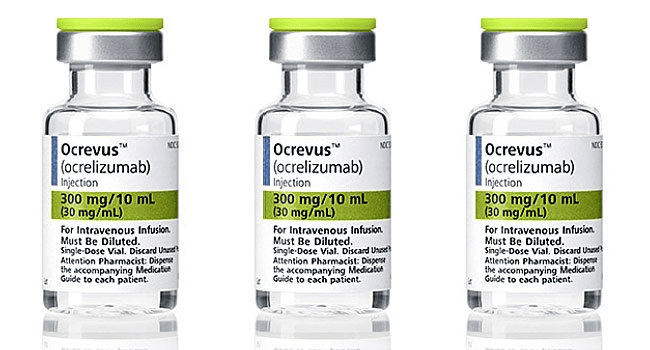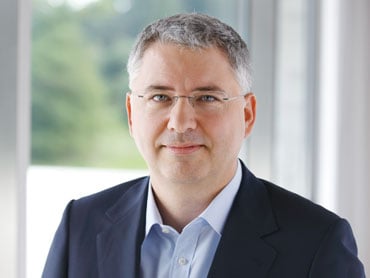
Roche saw a decline in its European sales last year as biosimilars started to bite its blockbuster biologic drugs, but strong growth for new products kept it in growth mode.
The drugmaker reported sales up 7% to 56.8bn Swiss francs ($57.1bn) for 2018, with a 7% decline in Europe caused mainly by falls for MabThera/Rituxan (rituximab) and breast cancer therapy Herceptin (trastuzumab) offset by gains of 14% in the US and 10% elsewhere.
The result was stronger than expected, given that earlier this year some analysts had been predicting Roche’s revenues could fall by around 9% as cut-price biosimilars of its top biologics rolled out in the marketplace.
The saving grace for the company has been a slower roll-out of biosimilars in the US compared to Europe, a situation which could change as the FDA steps up plans to encourage biosimilar access and prescribing.
Roche said it thinks the same pattern will be evident this year, however, with new product growth outweighing declines for MabThera, Herceptin and Avastin (bevacizumab), which together account for more than a third (20bn francs) of its revenues last year. CEO Severin Schwan is predicting low- to mid-single digit growth in 2019 for both sales and earnings.
Multiple sclerosis therapy Ocrevus (ocrelizumab, pictured above) was once again the star of the show, rising 172% to 2.35bn francs in its first full calendar year on the market, making it Roche’s most successful launch ever. The drug has seen strong uptake in both relapsing-remitting and primary progressive forms of MS in the US, which accounts for almost 90% of total sales,
Europe is gaining momentum however, contributing more than 200m francs to the drug’s tally, although Roche could face stiffer competition this year overall if a rival drug from Novartis reaches the market.
All told, new products accounted for 90% of Roche’s sales growth in 2018, with another big boost provided by the company’s breast cancer drug Perjeta (pertuzumab), up 27% to 2.8bn francs. New haemophilia drug Hemlibra (emicizumab) added 224m francs, which Schwan said was ahead of expectations – and Esbriet (pirfenidone) for lung disease idiopathic pulmonary fibrosis (IPF) brought in just over 1bn francs, a rise of 19%.
Cancer immunotherapy Tecentriq (atezolizumab) grew 59% to 772m francs for the full-year, and a look at its quarterly figures reveals that it seems to be gathering momentum at long last. It made 248 francs in the fourth quarter, indicating that it could be in blockbuster territory in 2019, helped by a new FDA approval in combination with Avastin, paclitaxel and carboplatin for the initial treatment of people with metastatic non-squamous non-small cell lung cancer (NSCLC).

Roche CEO Severin Schwann
“I am particularly pleased with the very strong demand for our new medicines, delivering significant benefit for patients fighting serious diseases like cancer, multiple sclerosis and haemophilia,” said Schwan.
“Based on the successful launches and our strong product pipeline Roche is well positioned for continued growth.”
The buoyant performance will help numb the pain of Roche’s decision earlier this week to abandon two phase 3 trials of its Alzheimer’s disease drug crenezumab, a high-risk, high-reward experimental candidate.




